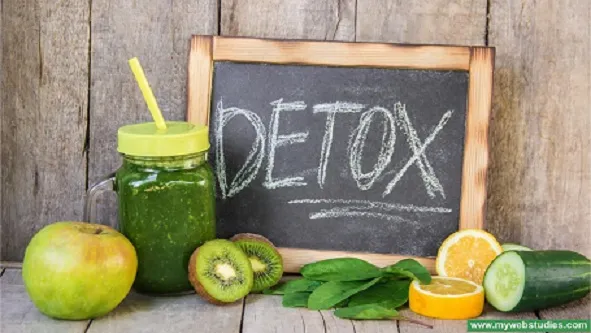ByOnlinecourses55

Why do a detox diet - nutrition detox
As mentioned above, the various Detox meal plans have different characteristics, although they generally recommend a diet rich in raw vegetables and fruits, water, medicinal plants and other supplements. Although their main objective is not weight loss, but the elimination of waste and toxins to improve the functioning of the body, they can also contribute in a healthy way to weight reduction.
The liver, kidneys, lymphatic system, intestines, lungs, blood and skin are the main organs responsible for detoxifying the body. However, factors such as environmental pollution, the use of chemical products and the excessive consumption of trans fats, sugars, coffee, tobacco, alcohol and refined foods can overload these organs, causing some toxins not to be eliminated and accumulate in the body.
Despite limited scientific evidence on the effectiveness of detox diets, they can be a way to make healthier food choices. Many people who follow them report improvements in their digestion, mood and energy levels, which is logical after replacing processed and caloric foods with more natural options with beneficial properties.
We often underestimate the impact of toxin buildup on our bodies, but if you pay attention, you may be able to identify some symptoms. The most common include lack of energy, moodiness, headaches, skin rashes, overweight, slow digestion and frequent gas.
If you experience some of these symptoms regularly, your cleansing organs, such as the liver and kidneys, may need a detox diet to support and improve their function. Ignoring the toxic effects on the body for too long can lead to chronic diseases such as cancer, diabetes and heart disease.
Before making significant changes in your diet, make sure you are able to carry them out, and consult your doctor in any case.
Detox diets are not recommended in the following cases: